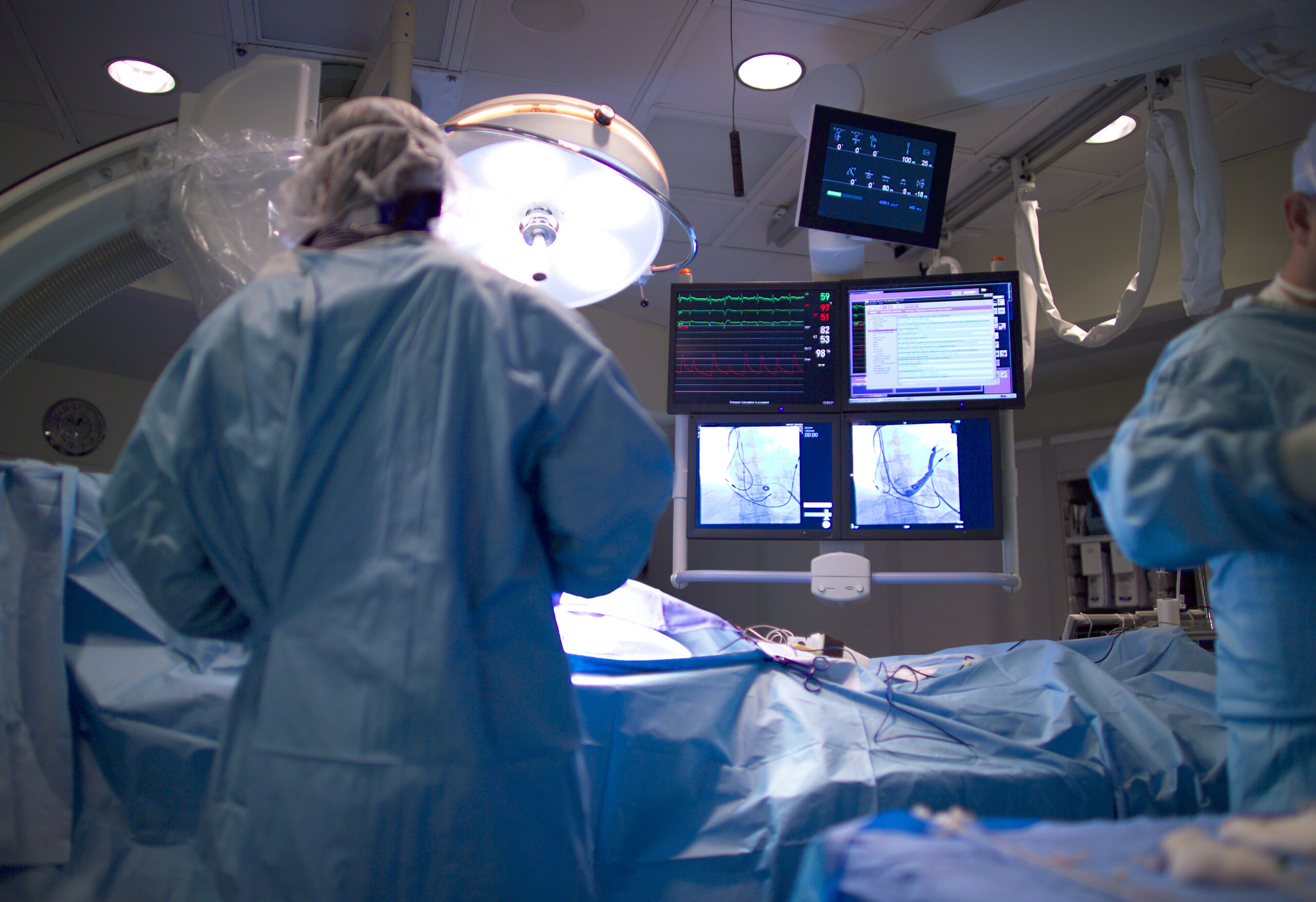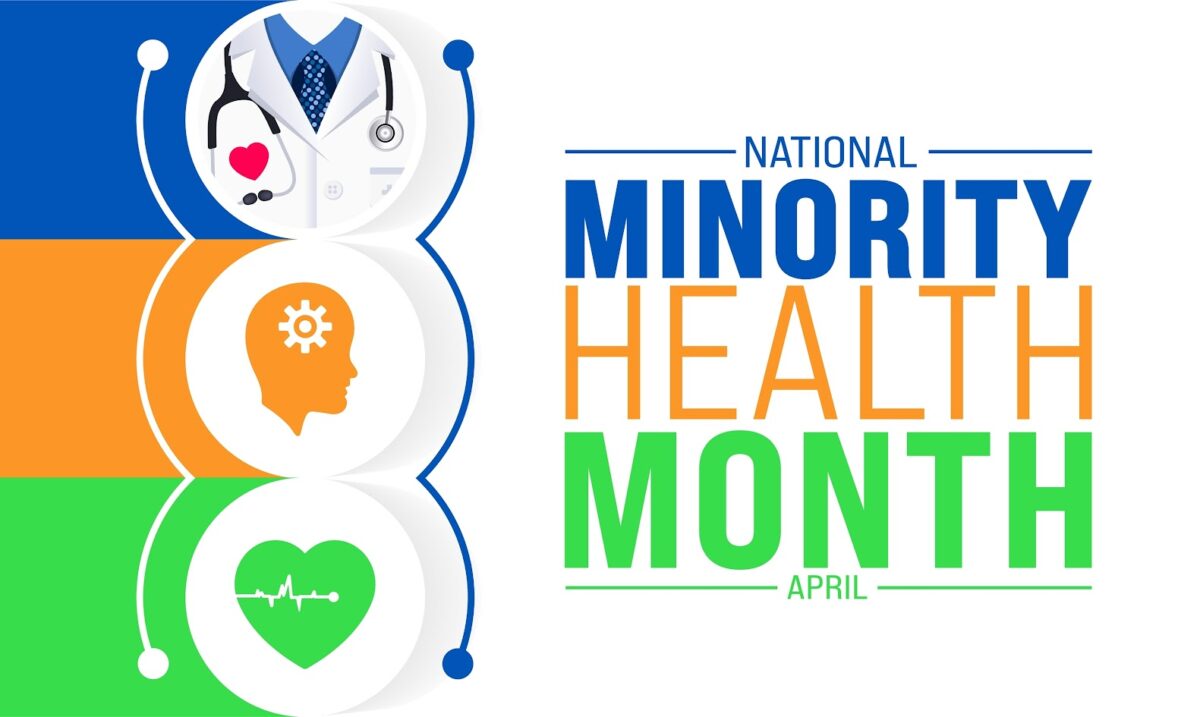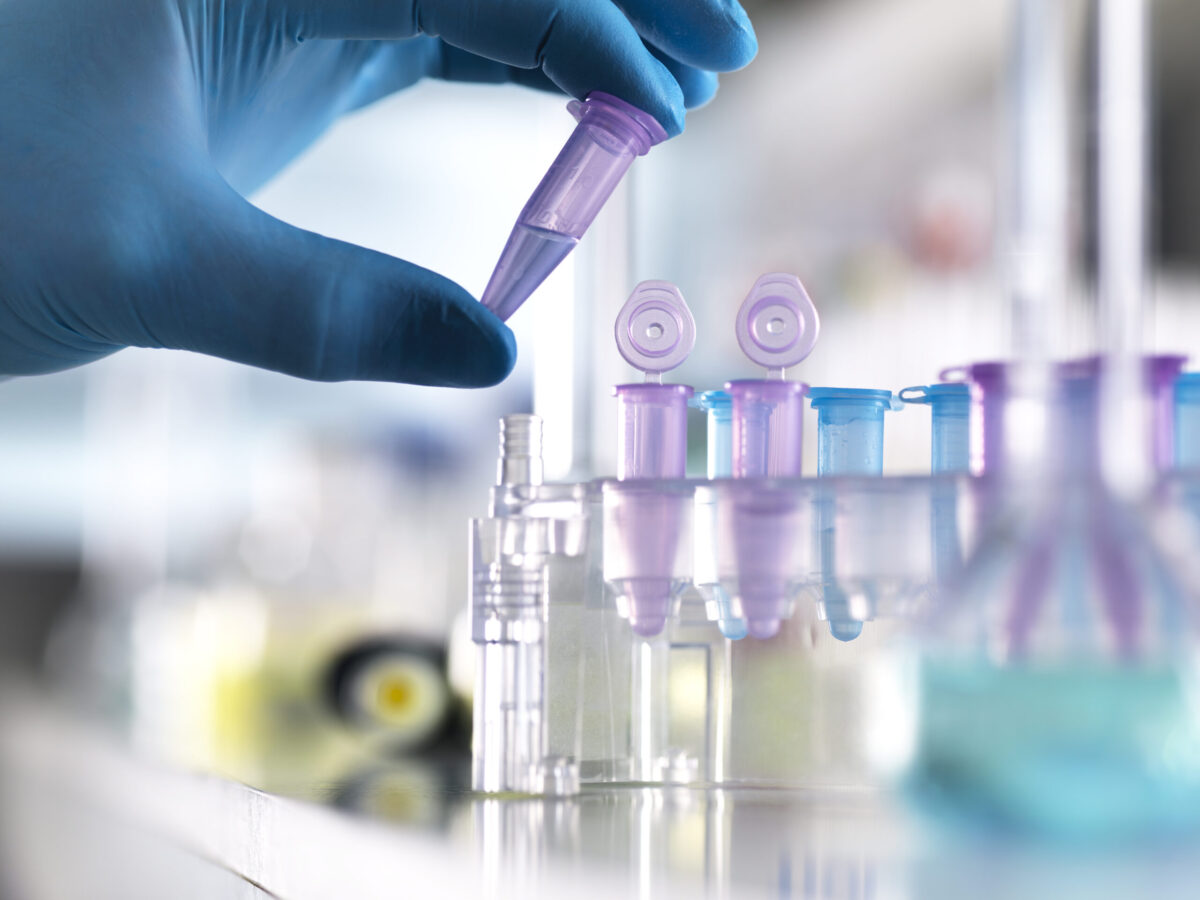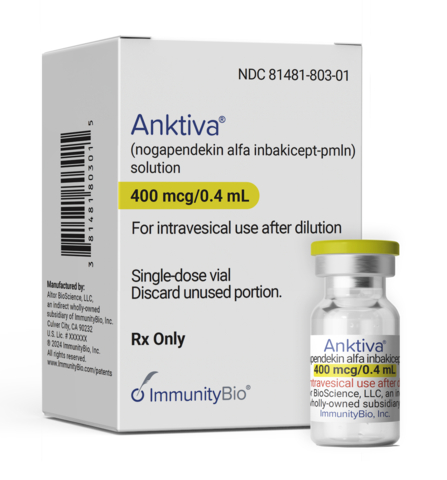Thyroid Awareness Month is marked every January to emphasize the importance of thyroid health.
The theme of Thyroid Awareness Month 2024 is “Nurturing Thyroid Health: Knowledge, Detection and Wellness.”
The month focuses on understanding the thyroid’s vital role in many bodily functions, encouraging testing and early treatment for thyroid dysfunctions and advocating for awareness about the different types of thyroid diseases.
There are various thyroid diseases, some of which include hypothyroidism, hyperthyroidism, Graves’ disease (a type of hyperthyroidism), nodules and thyroid cancer.
The thyroid plays a critical role in the body by producing hormones that regulate metabolism, heart rate and body temperature among others. It influences the function of virtually every organ system, from the brain to the skin. Proper thyroid function is essential for overall health and well-being.
Thyroid Awareness Month aims to bring awareness to recognizing potential indicators of thyroid issues, such as fatigue, weight changes and mood swings, to promote timely intervention.
Events and activities to mark Thyroid Awareness Month include self-checks for thyroid abnormalities, encouraging friends and family to get tested and making donations to related research or treatment institutions. It’s a time to recognize the impact of the thyroid and to promote better health through awareness and education.
Related: Glaucoma Awareness Month 2024: New and Promising Treatments for Glaucoma
Thyroid Disease Statistics
According to the American Thyroid Association (ATA), more than 12 percent of Americans will develop a thyroid condition in their lifetime. Currently, 20 million people in the US are diagnosed with a thyroid disease and up to 60 percent of those with one are unaware.
Women are five to eight times more likely than men to experience thyroid conditions, with one in eight women likely to develop thyroid issues during their lifetime. Pregnant women with undiagnosed or inadequately treated hypothyroidism have an increased risk of complications such as miscarriage, preterm delivery and severe developmental problems in their children.
Types of Thyroid Conditions
There are several different thyroid conditions, with each affecting thyroid hormone production or the gland’s structure, leading to a range of health issues.
Some common thyroid conditions include:
Hypothyroidism (underactive thyroid): Hypothyroidism is a condition where the thyroid gland produce enough thyroid hormones, leading to a slowdown in the body’s metabolism. It can cause fatigue, weight gain, cold intolerance and other symptoms.
The primary medication used to treat hypothyroidism is levothyroxine, a synthetic form of the thyroid hormone thyroxine (T4). It helps restore adequate hormone levels, reversing the signs and symptoms of hypothyroidism. In the US, some of the brand names that levothyroxine is sold under include Synthroid (from AbbVie), Levoxyl (Pfizer) and Tirosint (by Swiss manufacturer IBSA Institut Biochimique).
Hyperthyroidism (overactive thyroid): Hyperthyroidism is a condition where the thyroid gland produces higher than normal amounts of thyroid hormone, leading to an acceleration of the body’s metabolism. This can cause symptoms such as weight loss, rapid heartbeat, sweating, nervousness and irritability.
Hyperthyroidism is often treated with medications, radioactive iodine, or surgery to reduce hormone production. Medications used to treat hyperthyroidism include anti-thyroid agents like methimazole and propylthiouracil, which reduce thyroid hormone production. Beta-blockers may also be prescribed to manage symptoms like rapid heart rate and tremors associated with the condition.
Goiter (enlarged thyroid): A goiter is an enlargement of the thyroid gland that is visible as a swelling at the base of the neck. It can occur due to iodine deficiency, thyroid dysfunction or other factors. While not always harmful, it may indicate an underlying thyroid issue and can cause symptoms like coughing or difficulty swallowing if large enough. Treatment depends on the cause, size and associated symptoms.
Thyroid nodules: Thyroid nodules are growths that form within the thyroid gland. They are common and usually benign, but a small percentage can be cancerous. Symptoms are rare, but large nodules can cause discomfort or difficulty swallowing. Diagnosis often involves ultrasound or fine-needle aspiration to determine their nature, and treatment ranges from watchful waiting to surgery, depending on the type and symptoms of the nodule. Thyroid nodules are common, especially in women.
Thyroid cancer: Thyroid cancer originates in the thyroid gland and often presents as a lump or nodule in the neck. It’s relatively uncommon and usually treatable, especially if diagnosed early. Treatments can include surgery, radioactive iodine, thyroid hormone therapy or a combination.
There are different types of thyroid cancer with papillary thyroid cancer being the most common, accounting for 80 percent of all thyroid cancer cases. Papillary thyroid cancer tends to grow slowly and generally has a good prognosis. Anaplastic and medullary thyroid cancers are aggressive types of the cancer that are often resistant to standard therapies and hence difficult to treat, as are advanced or metastatic thyroid cancers and those resistant or refractory to radioactive iodine treatment.
Hashimoto’s thyroiditis: Hashimoto’s thyroiditis, also known as chronic lymphocytic thyroiditis, is an autoimmune disorder where the immune system attacks the thyroid gland, leading to inflammation and an underactive thyroid (hypothyroidism). It’s the most common cause of hypothyroidism in the US. Symptoms may include fatigue, weight gain, cold intolerance, joint and muscle pain, dry skin, thinning hair and depression. Treatment typically involves thyroid hormone replacement therapy to maintain normal hormone levels. The condition tends to progress slowly over years and is more common in women than men.
Graves’ disease: Graves’ disease is an autoimmune disorder that leads to overactivity of the thyroid gland (hyperthyroidism). It occurs when the immune system mistakenly attacks the thyroid, causing it to produce too much thyroid hormone. This results in symptoms like anxiety, irritability, weight loss, rapid heartbeat, heat intolerance and bulging eyes (Graves’ ophthalmopathy). Treatment options include antithyroid medications, radioactive iodine therapy and sometimes surgery. Managing Graves’ disease focuses on reducing thyroid hormone production and addressing symptoms.
Clinical Trials for Thyroid Conditions
New treatments are being evaluated in clinical studies for various thyroid conditions, including thyroid cancer.
Thyroid cancer
Radioiodine refractory, recurrent, metastatic differentiated thyroid cancer, anaplastic thyroid cancer, medullary thyroid cancer and radioactive iodine-resistant thyroid cancers tend to be aggressive and hence difficult to treat with limited treatment options. New treatments being evaluated in these cancers include Eli Lilly’s Retevmo (selpercatinib) and Blueprint Medicines and Genentech’s Gavreto (pralsetinib), which target mutations in the rearranged during transfection (RET) gene.
Novartis’ BRAF inhibitor Tafinlar (dabrafenib) along with MEK inhibitor Mekinist (tramelitinib) is currently used to treat anaplastic thyroid cancer, and the duo is being evaluated with Regeneron’s IgG4 monoclonal antibody targeting PD-1 Libtayo (cemiplimab) for BRAF-mutated anaplastic thyroid cancer.
Other targeted therapies being evaluated for thyroid cancers include Exelixis’ Cabometyx (cabozatinib), a small molecule inhibitor of the tyrosine kinases c-Met and VEGFR2 as well as AXL and RET. It is currently being studied as a monotherapy in radioiodine–refractory, differentiated thyroid cancer in the Phase III COSMIC-311 trial, which has shown promising results so far.
Merck’s PD-1/PD-L1 blockbuster oncology drug Keytruda (pembrolizumab) is also being studied in trials for advanced thyroid cancer and anaplastic thyroid cancer. Thyroid dysfunction, including thyroiditis and hypothyroidism, is actually common in patients treated with pembrolizumab for other cancers.
Genentech’s Rozlytrek (entrectinib) and Bayer’s Vitrakvi (larotrectinib) are being evaluated for cancers with neurotrophic tyrosine receptor kinase (NTRK) gene fusions.
Hypothyroidism
While levothyroxine remains the predominant treatment for hypothyroidism, other alternatives are gaining significant interest.
Alternatives to the standard levothyroxine therapy for hypothyroidism are currently being evaluated. While levothyroxine, a synthetic form of thyroxine (T4), remains the primary treatment, there’s a growing trend towards exploring the use of other thyroid hormones. These include:
- Desiccated thyroid extract (DTE): DTE is a natural form of thyroid hormone that contains both T4 and T3 (triiodothyronine). According to data presented at the Endocrine Society’s (ENDO) annual meeting in 2023, its use has doubled in the past decade, increasing from five percent to ten percent.
- Synthetic T3 therapy: Some clinical guidelines suggest considering the addition of synthetic T3 therapy if T4 alone does not adequately resolve symptoms.
Hyperthyroidism
Recent advancements in the treatment of hyperthyroidism include biologics, immunomodulatory peptides and small molecules. Some new treatment approaches currently being evaluated in trials include:
- B-cell depletion: Rituximab, which is an anti-CD20 monoclonal antibody currently in Phase II trials.
- Blocking FcRn-IgG interactions: RVT-1401, rozanolixizumab and efgartigimod in a Phase II trial.
- Blocking BAFF interaction: Belimumab, which is an anti-BAFF monoclonal antibody in a Phase II trial.
- Small molecule thyroid hormone stimulating receptor (TSHR) antagonists: ANTAG-3, VA-K-14, S37a are in preclinical stages.
- TSHR-blocking antibodies: K1-70, which is an anti-TSHR monoclonal antibody in a Phase I trial and case reports.
- TSHR-specific immunotherapy: ATX-GD-59 (also known as TSHR peptide) is in a Phase I trial.
The thyroid disease market is huge, and lucrative. The global thyroid gland disorder treatment market was valued at $2.26 billion in 2022 and is projected to hit $3.15 billion by 2030 at a compound annual growth rate (CAGR) of 3.67 percent from 2023 to 2030. The market is being driven by the rising incidence of thyroid disorders coupled with increasing awareness and screening initiatives.
According to the Yale School of Medicine, hypothyroidism medication levothyroxine may be one of the most prescribed drugs in the US, with 23 million Americans taking it. Some experts warn that the drug may even be overprescribed as the diagnosis of hypothyroidism itself may not be completely accurate given seasonal variations in the hormones that current testing doesn’t consider.
Thyroid Awareness Month 2024 is dedicated to raising awareness about thyroid disorders, which includes looking out for signs and symptoms of various thyroid diseases and looking forward to the development of new and improved treatments.












Join or login to leave a comment
JOIN LOGIN